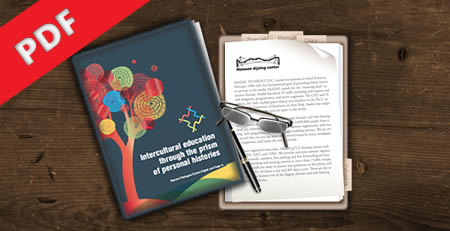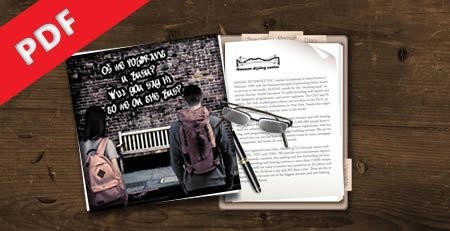The New school
Vukovar is a city well known in the world. The mention of that city associates people with war casualties and destruction. Few people know that in this beautiful city before the war 27 nationalities lived in harmony and mutual respect, daily contributing for Vukovar to become what it was – the cultural, educational and administrative centre of Western Syrmium. During the war, this part of the country was destroyed and devastated. Although most of the houses and roads, sacred objects and administrative buildings have been rebuilt, the inhabitants of Vukovar have never in the history been so divided. We often hear that they do not live with each others, but next to each others, living in a constant effort to avoid the others. Today, almost 20 years after the war, the biggest challenge is to renew and strengthen the ties among people, to gain trust and respect.
In order to retrieve trust in people, develop collectiveness and build a society in which every individual is equally valuable, it is necessary to start from the youngest members of the community. Unfortunately, in these areas, children have no possibility of socializing and learning together. In the post-war, divided communities, the educational system is segregated (in the multicultural areas students are mostly educated according to the model A, in the language and script of the minority, which means that students attend classes in separate classrooms). Dividedness is expressed to the extent that children are separated into different shifts or use certain parts of the building, with separate entrances, and choose which side of the hall to walk on, just so they would not meet the “others”.
In such a system no one is satisfied because such education does not create a sane foundation for the normal development of a community, city and region. Dividedness negatively affects the children from the two largest ethnic groups (Croats and Serbs), and has a further negative effect on the children from mixed marriages, children of other nationalities, their parents and the future of the community as a whole. Unfortunately, the reality is that these groups are forced to choose one of these two sides and thus deny their own group or unique identity. This situation just encourages social exclusion and social segregation.
According to the research, parents do not want segregated education. Research on the quality of education in Vukovar showed that 71.4% of all parents in Vukovar, regardless of nationality, are dissatisfied with the way the issue of education for national minorities in Vukovar is regulated. Parents don’t consider this model of education acceptable for their children and for the process of social reconstruction of the communities in which they live. They point out that children should be educated together, learn from each other and about each other in order to understand, respect, and in the future jointly build a society in which they will happily live together.
After the research, the Nansen Dialogue Centre, in cooperation with the Education and Teacher Training Agency of the Republic of Croatia – Osijek branch, along with teachers and parents, developed a General Curriculum of the New School, as a possible alternative model to the existing segregated models.
The General Curriculum of the New School highly emphasizes the values that parents and teachers believe to be necessary to nurture and develop children: acceptance and respect for others, acceptance of diversity, inclusiveness, solidarity, the principles of equal opportunity, non-violence and peaceful coexistence.
The particularity of the New School Curriculum is the subject “Cultural and spiritual heritage of the Region” (CSHR), and learning of their mother tongues as the languages of the region.
Education and Teacher Training Agency gave a positive expert opinion on the General Curriculum of the New School and the Subject Curriculum “Cultural and Spiritual Heritage of the Region”, which proposes to be incorporated into other schools in multiethnic communities in the Republic of Croatia (May 2007)..
Parents gathered in Vukovar parents club “For the Children of Vukovar” and Nansen Dialogue Centre launched an initiative to establish the New School, the first integrated, inter-cultural school in Vukovar. In public signing of the petition for the Initiative, more than 1000 citizens of the city of Vukovar gave their signature as a support for the establishment of the New School in Vukovar.
Formal recommendations for the New School project was given by: Mayor of Vukovar, Vukovar-Syrmium County, Coordination of National Minorities Council of Vukovar-Syrmium County, the Education and Teacher Training Agency of the Republic of Croatia, President of Croatia Stjepan Mesic, the Office of the Ombudsman for Children, UNICEF, Knut Vollebaek, High OSCE Commissioner on National Minorities, OSCE Mission in Croatia – Vukovar field office.
The New School is also recognized as a positive and good alternative by the important factors in the Croatian educational system, among the organizations dealing with human and children’s rights, peace building, and also among bodies dealing with issues of social inclusion.
The New School is listed as an example of good practice, a way to help minorities and the majority to develop their own identities in a true intercultural interaction, within a shared environment, as opposed to living next to each other, in the National Action Plan for the Rights and Interests of Children from 2006. to 2012, adopted by the Croatian government (March 2006).
The new school, as an alternative to the existing educational models in Vukovar, did not want to be the only model of primary education. Every parent has a right to choose the model for which he/she believes to best fit the needs of their children. For this reason the New School is primarily an alternative for those who are not satisfied with the existing models and their deficiencies (such as separation, exclusivity, etc.).
After the Education and Teacher Training Agency has issued a positive expert opinion, subject Cultural and Spiritual Heritage of the Region was offered to schools in Eastern Slavonia and Baranja. In the three-year pilot project (2007-2010), three schools implemented CSHR as an extracurricular activity in their schools, with the support of the Ministry of Science, Education and Sports. From 2010. the project includes nine schools in the eastern Croatian region.
Since 2008 within the framework of the New School project, we started implementation of project the Children Together – with a goal of integrated and intercultural learning through workshops in kindergartens in Vukovar (that are also segregated). The project has so far involved more than 80 children and their parents. With financial support from the Ministry of Agriculture, Forestry and Water Economy, Ministry of Science and Education and Erste Foundation, in the building of segregated kindergarten we opened a computer-room, shared by children and educators from both kindergartens.























